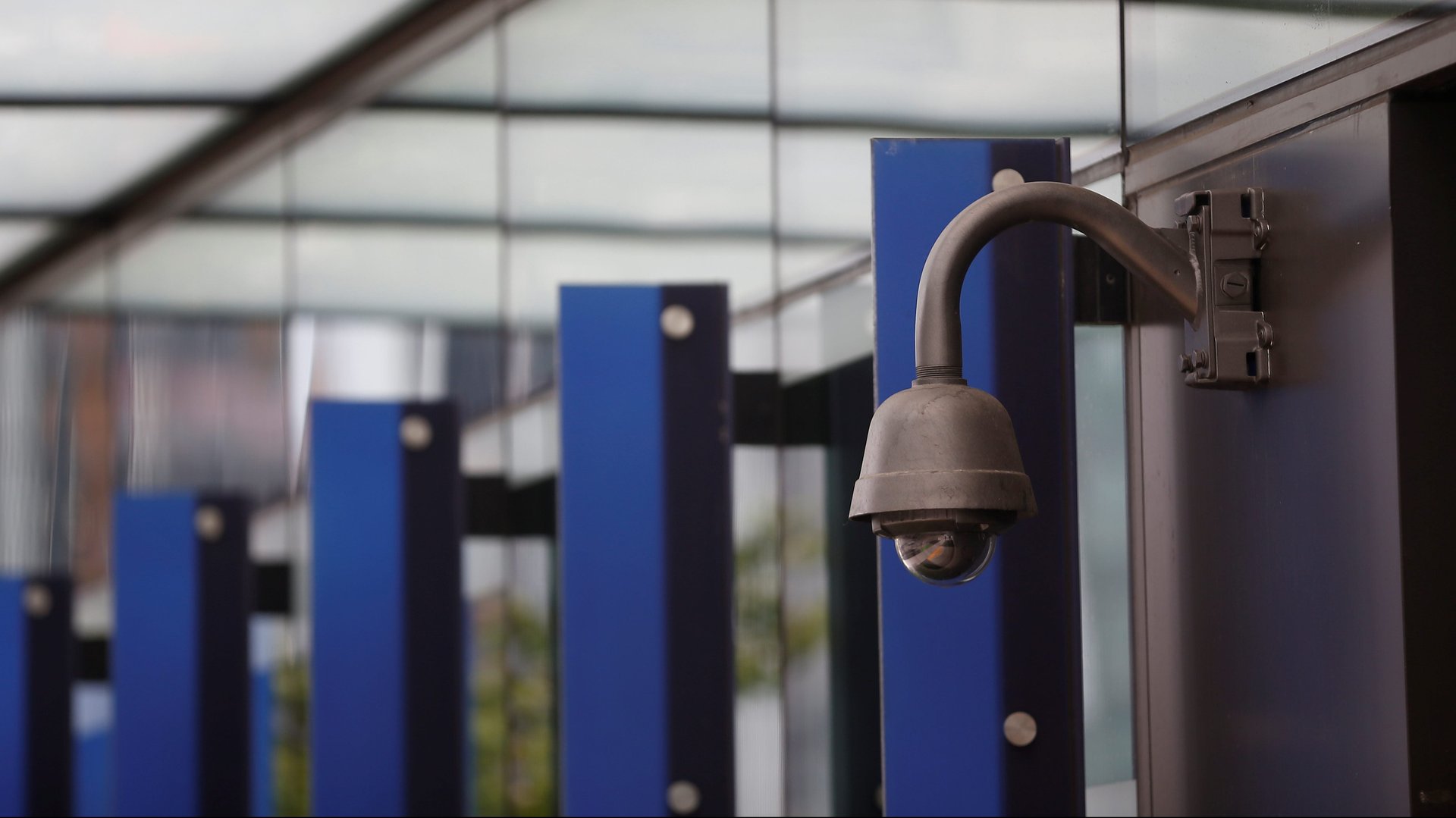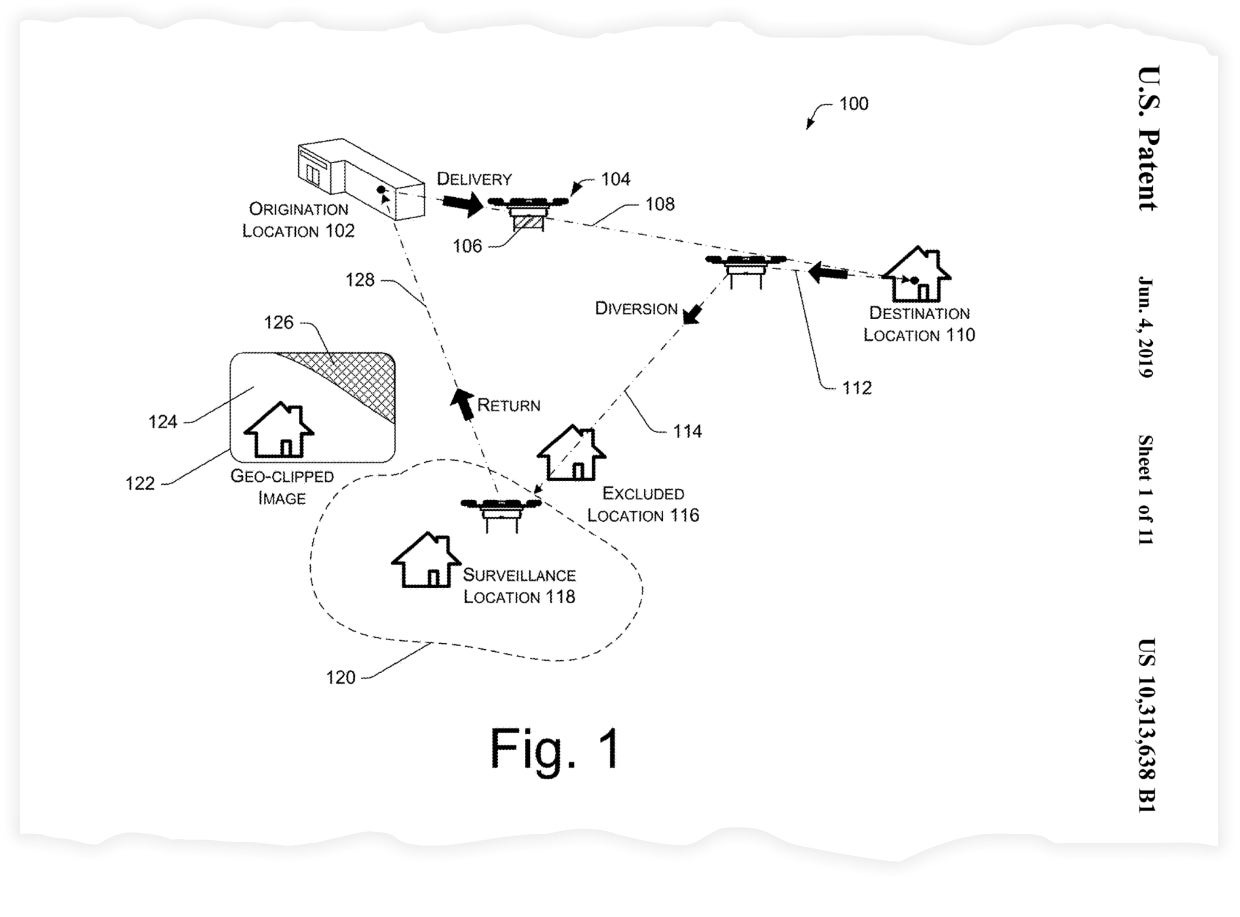Amazon wants to sell “surveillance as a service”
In case Amazon’s surveillance capabilities weren’t extensive enough with its Echo, Ring, and Key products, not to mention all the data Amazon routinely collects on its customers, the company recently received a US patent to provide “surveillance as a service.”


In case Amazon’s surveillance capabilities weren’t extensive enough with its Echo, Ring, and Key products, not to mention all the data Amazon routinely collects on its customers, the company recently received a US patent to provide “surveillance as a service.”
The patent is for an “unmanned aerial vehicle”—the technical term for a drone—that “may perform a surveillance action at a property of an authorized party” and could “image the property to generate surveillance images.” Amazon suggests in its patent, filed June 12, 2015, and granted June 4 of this year, that drone-based surveillance would be superior to traditional video-camera installations that have limited range, are liable to miss things, and can be manipulated or damaged by an intruder.

Drone-based surveillance is a logical next step for Amazon, which has invested heavily in both parts of that equation. The company has been talking about using drones to deliver packages since 2013, at the time, to the great amusement of logistics giant FedEx. These days, Amazon’s plans are probably looking a lot less funny to its competitors. Amazon consumer chief Jeff Wilke said in early June that the company could start using its Prime Air drone to deliver packages to customers within the next few months, as it pushes to make one-day delivery the new standard on Amazon Prime.
Amazon’s recent patent says surveillance would be a “secondary task” of such a drone-based system, after package delivery. The company suggests a user may want to “subscribe to a surveillance system to provide surveillance as a service,” a riff on the established “software as a service” category.
In February 2018, Amazon paid more than $1 billion for Ring, the maker of a “smart doorbell” that sends a video feed customers can check and answer from their smartphone. Three months after that deal, Amazon launched Neighbors, a crime-reporting social network that encourages users to upload videos straight from their Ring security cameras and tag posts with labels like “Crime,” “Safety,” and “Suspicious.” More than 50 local US police departments have partnered with Ring to gain access to its owners’ security footage. Amazon also offers Amazon Key, a service that lets Prime members have packages delivered straight into their homes—if they install its smart lock on their door and Amazon security cameras inside their homes.
Meanwhile, Amazon’s Echo and voice-assisted personal assistant, Alexa, was in an estimated 24% of US households as of the fourth quarter of 2018, according to survey data from investment firm Cowen. In April, Bloomberg reported that Amazon workers were listening to voice recordings captured by its Echo devices and using them to improve Alexa’s understanding of human speech. Alexa’s listening capabilities are so acute that a team of researchers at the University of Washington developed a tool that can reportedly listen to human breathing for signs of a heart attack.